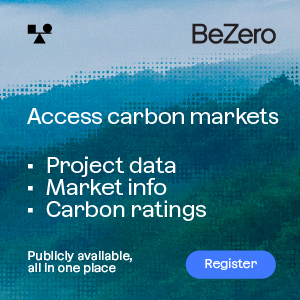Dozens of large corporations have taken on voluntary 2 degrees C-aligned emissions reduction targets since the Paris Agreement, though the list is very light on big-emitting heavy industry.
Some 41 firms have joined the Science-Based Targets initiative since the landmark Paris climate deal was struck in December, taking the total to 155 companies worldwide, according to a statement from the year-old venture.
It was set up jointly by non-profits CDP and UN Global Compact, think-tank WRI and environmental campaigners WWF, which all separately run programmes to encourage companies to take voluntary action to curb their emissions.
The participating firms are headquartered in 27 countries, with 77 in Europe, 34 in Asia-Pacific region, 25 in the US, and nine in Canada.
These include several utilities, financial services firms, consumer-focused companies such as Coca-Cola and Dell, as well as automakers Daimler, Renault, and Toyota.
But the list included just a handful of big-emitting heavy industrial companies that are subject to mandatory carbon pricing in the EU and a growing number of other regions. These included India’s Aditya Birla Chemicals, Taiwan’s China Steel Corp, and Finland’s steelmaker Outokumpu and paper firm Stora Enso.
Thirteen of the 155 have already had their emissions reductions targets reviewed and approved by experts from the initiative, setting goals to cut their direct emissions and those from energy use by a collective 874 million tonnes of CO2. Some also committed to emission cuts throughout their value chains.
Forty-five companies have targets currently under review, and the remaining companies are in the process of developing targets.
“Our technical reviewers cannot keep up with the number of targets being submitted. This is a great problem to have and a clear indication that the Paris Agreement was a turning point for climate action,” said WRI’s Cynthia Cummis.
The companies use one of several of the initiatives’ methodologies to set a goal, which are geared towards specific types of companies and have various ways of deriving what a company’s ‘fair share’ of contributing to a global goal of limiting temperatures to at least 2C.
One method, called the sectoral decarbonisation approach, is designed for big-emitting electricity generation, steel, chemicals, aluminium, cement, paper, transport and buildings.
“In the past, companies would set targets without the necessary information or a solid point of reference. They would just pick a round figure and aim for cuts of 20%, 30%, 40%, with no further justification, other than generic aspirations. Now, we have a target that is approved by external, credible experts, verified through relevant scientific methodology,” said Galya Tsonkova of bottling firm participant Coca-Cola HBC.
By Ben Garside – ben@carbon-pulse.com
Not yet signed up to CP Daily? Subscribe to our free newsletter here



